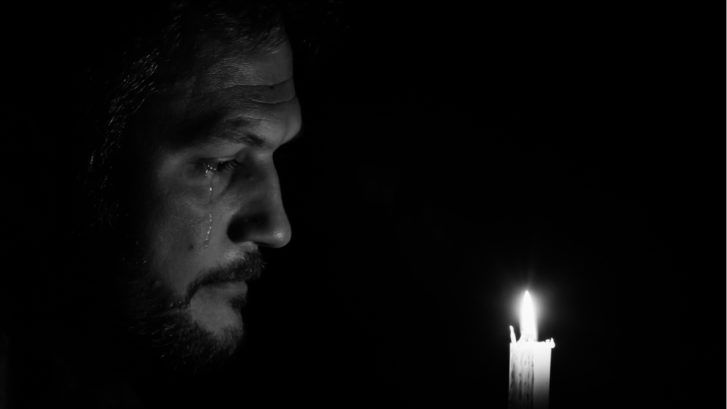Each year the Church celebrates Doubting Thomas Day. It is a rough day for the Apostle. Not only does the poor fellow miss out on Jesus’ first appearance to His Disciples, but he tells them that they must have dreamed it, and the only way he will believe Jesus has risen is to put his fingers into the wounds of Calvary. A week later, the Lord embarrasses him with just that invitation, “Trace My wounds.”
There is more to this Gospel than meets the eye. This is not simply a fascination story of belief and disbelief. First, this appearance of the risen Jesus, like all His appearances, tells us something of supreme importance about Jesus Himself. There are many remarkable features to what we call the incarnation: that the son of God took our flesh as His own, from a teenage girl, and that He grew up much as you and I did, save for sin. He ate and drank, got tired and slept. And then His body was slapped and spat upon, whipped like a dog and nailed to a tree.
But then this same body was raised by God, the Father, from the grave. And all this for me! This is Gospel indeed! Good news beyond our wildest imagining.
But the appearances add one more truth still more exciting, of unparalleled significance for our human and Christian living. The appearances of Jesus after His resurrection tells us that the son of God has chosen to remain human forever. Jesus did not revert to what He had been before Bethlehem, in the form of God. Until time is no more, and through eternity, God’s own son will be clothed in a human body. What a tribute. What a remarkable compliment to our humanity.
The son of God wanted the human body that He took from us to be His forever. A compliment, yes, but a burden as well. It lays on us the task of shaping our humanity, our body and spirit, into the likeness of Jesus. Of liberating ourselves of those things that make us less than human, therefore make us less like Him. It raises humanity to new heights.
Christ kept His humanity: do we in turn see Him in the humanity around us? C.S. Lewis, the author, once wrote that next to the Blessed Sacrament itself, your neighbor is the holiest object presented to your senses for in your neighbor, Christ’s glory, Himself, is truly hidden. In the Eucharist you do not actually see the risen Christ. Glorified wounds and all, but you do recognize Him for He has opened the eyes not of your flesh, built of your faith. In the power of that faith you can exclaim with the Apostle, my Lord, my God.
In your own journeying you will meet thousands of women and men, people of all kinds. The Christian question is now, what will you see with the eyes of your flesh? The Christian question is, what will you recognize with the eyes of your faith? Will you be able to see divinity in humanity, or will seeing keep you from recognizing? Will the grime and the grit blind you? With the cancer or the Alzheimer’s, the ugly and the spiteful, all those very human things that make for difference and indifference, for hostility and hatred, will they prevent you from recognizing your risen Lord? Not only in the broken bread, but in the breaking heart? The broken body? The broken mind?
Some time ago, I spent 10 days living with our Friars from Graymoor at our parish in the slums of Kingston, Jamaica. It was the longest 10 days of my life. I thought I had seen the worst of hardship, the worst of poverty, until I went to spend the day with Mother Teresa’s Sisters of Charity. I was stunned as I walked into the courtyard of their house, and saw dozens upon dozens of people dying, of the blind and the lame. People suffering from every disease, from AIDS to leprosy, all being cared for by three nuns and a few volunteers.
The next morning after I had celebrated mass for the sisters, I sat with the Superior drinking coffee. I asked her what so many of you would have asked if you had spent time there: Sister, how do you do it day in and day out? She said, we try to see Christ in all the people who come to us. I said, but Sister, can you keep seeing Christ in so many people? Well, she said, we are only human. We get drained emotionally, physically. But at those times I only have to look into their eyes and I see Him. I see Him when I look into their eyes.
My friends, like the Disciples on the road to Emmaus, our hearts, too, will burn within us not only when the scriptures are proclaimed, not only when common bread and wine become the body and blood of Christ, but also when we recognize the risen Christ in those around us. Many things on this earth are precious. Some are holy. Humanity is holy of holies. Never let a day end when anyone has to say to you, if only you had looked into their eyes.


